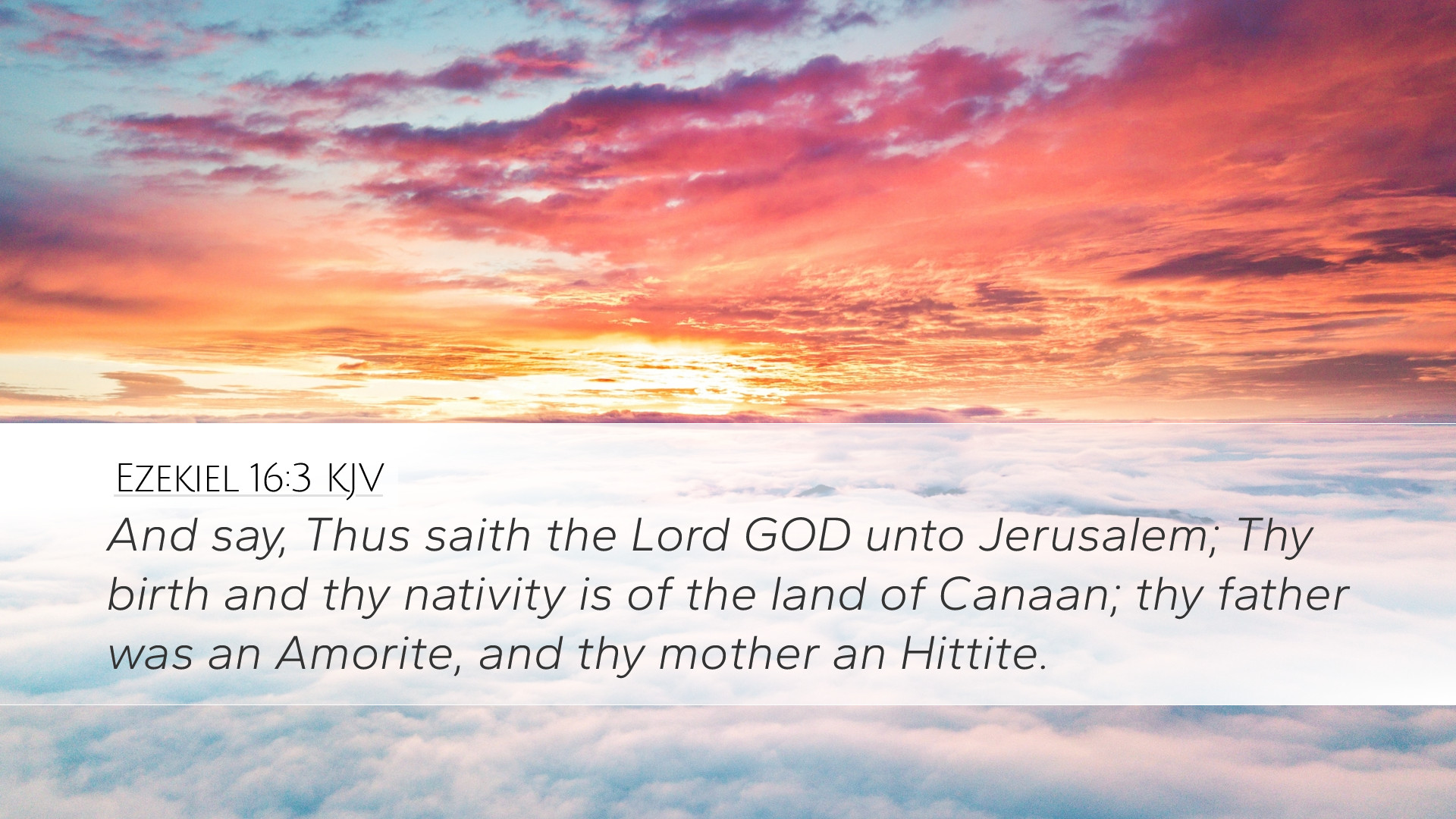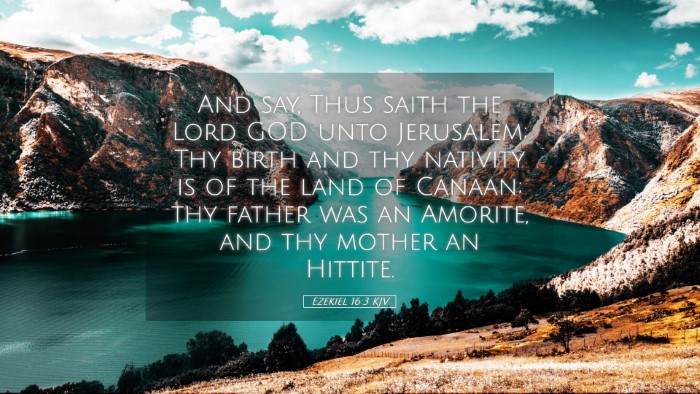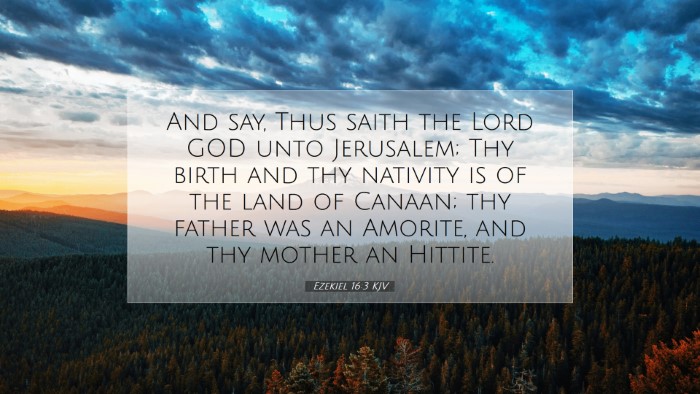Ezekiel 16:3 Commentary
Bible Verse: "And say, Thus saith the Lord God unto Jerusalem; Thy birth and thy nativity is of the land of Canaan; thy father was an Amorite, and thy mother an Hittite."
Overview
The verse Ezekiel 16:3 introduces a profound metaphorical narrative concerning Jerusalem. The Lord employs the imagery of a birth and lineage to explain the origins of His chosen people, emphasizing their humble beginnings and the grace bestowed upon them. This commentary synthesizes insights from notable public domain commentaries, enhancing understanding for pastors, students, theologians, and Bible scholars.
Contextual Background
Ezekiel was a prophet during a tumultuous period in Israel's history. The nation, having turned away from God, faced impending judgment. The use of metaphor in this verse is strikingly poignant; it reflects not only Jerusalem’s physical and spiritual state but also its covenantal relationship with God.
Interpretative Insights
Commentators like Matthew Henry provide a deep exploration of the implications of Jerusalem’s parentage. He notes that the reference to the Amorite father and Hittite mother underscores a significant point: Jerusalem's origins were rooted in pagan ancestry, representing humanity's sinful condition.
- Birth and Nativity: The term 'birth' denotes not merely a physical origin but a spiritual reality. God emphasizes that His people, starting from the lowest social and spiritual status, were drawn into a covenant relationship with Him.
- Geographical Reflection: The mention of Canaan speaks to a land filled with idolatry and immorality, suggesting that God's choice of Israel was entirely an act of divine grace and mercy.
Significance of Ancestry
Albert Barnes elaborates on the significance of the ancestry mentioned in this verse. The identification of Jerusalem with its pagan parents serves as an important reminder of the transformative power of God’s covenant. It highlights that, despite a lineage rooted in sin, the Lord can raise individuals and nations to positions of spiritual prominence through His divine intervention.
- Divine Selection: This selection illustrates the nature of God’s grace; it is not based on human merit but on divine purpose. This speaks volumes about the inclusivity of God’s love and His capacity to redeem.
- Contrast of Past vs. Future: Barnes points out that by referring to Jerusalem's past, God sets the stage for revealing the new identity He desires for His people, marked not by their former paganism but by redemption.
Thematic Exploration
Adam Clarke contributes by focusing on the broader thematic implications found within this verse. The motif of exile and subsequent restoration permeates Ezekiel’s writings, illuminating the faithfulness of God amidst Israel's unfaithfulness.
- Grace in the Midst of Degradation: Clarke emphasizes that even when they were without hope, God reached out to claim Jerusalem as His own. This reflects a theology of grace that is foundational to understanding God's relationship with humanity.
- Call to Remembrance: This verse serves as a divine reminder for believers today to reflect on their own spiritual heritage and the grace that has led them to redemption.
Pastorial Application
Pastors can draw several practical applications from Ezekiel 16:3. The recognition of one's origins can lead to humility and gratitude. It is essential for congregations to reflect on their past disobedience and the grace that has brought them to a present standing in Christ. Furthermore, this verse illustrates the call for believers to embrace their identity as God's children, irrespective of their pasts.
Conclusion
Ezekiel 16:3 is a rich source of theological reflection on divine grace and identity. By studying this verse through the lenses provided by Matthew Henry, Albert Barnes, and Adam Clarke, contemporary believers can gain a deeper understanding of their relationship with God. This commentary serves as a reminder that God's choice is transformative, calling forth a new identity that surpasses past sin and emphasizes mercy.


